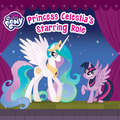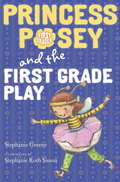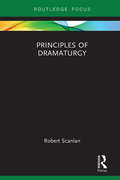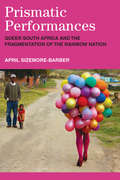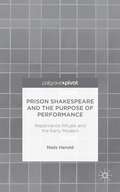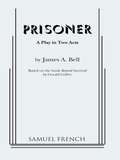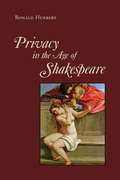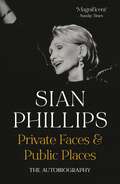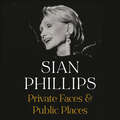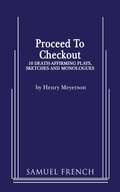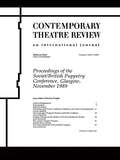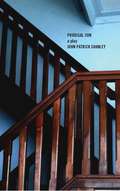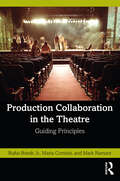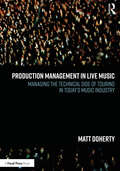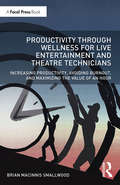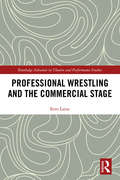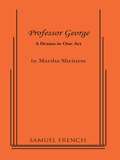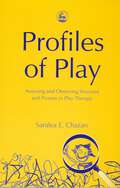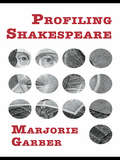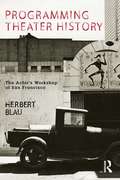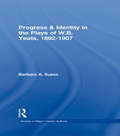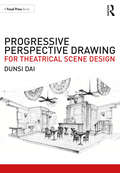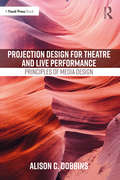- Table View
- List View
Princess Celestia's Starring Role (My Little Pony)
by Louise AlexanderIt's the 1,111th anniversary of when Princess Celestia first raised the sun, and Twilight Sparkle knows just how to celebrate: with a play starring Princess Celestia herself! The only problem is Princess Celestia can't act! Can Twilight Sparkle find a way to break it to her mentor and save the show?This storybook is based on an episode of My Little Pony: Friendship is Magic, as seen on Discovery Family and Netflix.© 2019 Hasbro. All Rights Reserved.
Princess Posey and the First Grade Play
by Stephanie Greene Stephanie Roth SissonEveryone's favorite first grader, Princess Posey, has to fess up to her biggest mistake yet in this eleventh book in the series!Posey's class has been learning all about bees, and when they plan to put on a play to demonstrate everything they've learned, Posey is thrilled. Posey loves a stage, and she's already got her heart set on the perfect role: the Queen Bee. But when Caitlyn is picked for the Queen Bee, Posey is crushed. Taking matters into her own hands, Posey swipes Caitlyn's special bee eraser when nobody's looking. But after she takes it, she feels worse. Maybe stealing wasn't the right thing to do--but how can she ever make things right? It takes a talk with her mom and a whole lot of courage, but Posey makes an important discovery: owning up to your mistakes is always the right thing to do.Praise for Posey:"Greene doesn't miss a step. Posey is the perfect fictional friend for any first-grade girl."—Kirkus Reviews"Greene's simple writing style and straightforward plot is ideal for advanced first graders or beginning second-grade readers."—School Library Journal
Principles of Dramaturgy (Focus on Dramaturgy)
by Robert ScanlanIn Principles of Dramaturgy, Robert Scanlan explains the invariant principles behind the construction of stage and performance events of any style or modality. This book contains all that is essential for training a professional stage director and/or dramaturg, including the "plot-bead" technique for analyzing play scripts developed by Scanlan. It details all the steps for the full implementation of "Production Dramaturgy" as it is practiced in professional theatres, and treats form and action as foundational cornerstones of all performance, rather than "story" elements – a frequent and debilitating misprision in theatre practice. Scanlan’s unique approach offers practical training that is supported by detailed diagrams and contextualized instructions, making this the missing text for classes in dramaturgy. Serving stage directors, dramaturgs, actors, designers, and playwrights, Principles of Dramaturgy is a comprehensive guide that puts the training of capable practitioners above all else.
Prismatic Performances: Queer South Africa and the Fragmentation of the Rainbow Nation (Triangulations: Lesbian/Gay/Queer Theater/Drama/Performance)
by April Sizemore-BarberAt his 1994 inauguration, South African president Nelson Mandela announced the “Rainbow Nation, at peace with itself and the world.” This national rainbow notably extended beyond the bounds of racial coexistence and reconciliation to include “sexual orientation” as a protected category in the Bill of Rights. Yet despite the promise of equality and dignity, the new government’s alliance with neoliberal interests and the devastation of the AIDS epidemic left South Africa an increasingly unequal society. Prismatic Performances focuses on the queer embodiments that both reveal and animate the gaps between South Africa’s self-image and its lived realities. It argues that performance has become a key location where contradictions inherent to South Africa’s post-apartheid identity are negotiated. The book spans 30 years of cultural production and numerous social locations and includes: a team of black lesbian soccer players who reveal and redefine the gendered and sexed limitations of racialized “Africanness;” white gay performers who use drag and gender subversion to work through questions of racial and societal transformation; black artists across the arts who have developed aesthetics that place on display their audiences’ complicity in the problem of sexual violence; and a primarily heterosexual panAfrican online soap opera fandom community who, by combining new virtual spaces with old melodramatic tropes allow for extended deliberation and new paradigms through which African same-sex relationships are acceptable. Prismatic Performances contends that when explicitly queer bodies emerge onto public stages, audiences are made intimately aware of their own bodies’ identifications and desires. As the sheen of the New South Africa began to fade, these performances revealed the inadequacy and, indeed, the violence, of the Rainbow Nation as an aspirational metaphor. Simultaneously they created space for imagining new radical configurations of belonging.
Prison Shakespeare and the Purpose of Performance: Repentance Rituals and the Early Modern
by Niels HeroldOver the last decade a number of prison theatre programs have developed to rehabilitate inmates by having them perform Shakespearean adaptations. While twentieth and twenty-first century ideas about theatre as therapy, political resistance, and popular education hold sway for many programs, this book focuses on how prison theatre today reveals certain elements of the early modern theatre that were themselves responses to cataclysmic changes in theological doctrine and religious practice. Herold reads the Shakespearean theatre at once historically and forward ("presentising"). He examines the precise dramaturgical and ideological elements of this historical theatre that are today conducive to the remarkable rehabilitative success of prison theatre programs like Shakespeare Behind Bars.
Prisoner (Bell)
by James A. BellDrama / 14m, 1f, 2c / Minimal set / Set inside the Hoa Lo prison in Hanoi, this drama provides a close up look at experiences of actual POWs in Vietnam. Navy Lieutenant Gerald Coffee was captured in North Vietnam in 1966. Prisoner follows his experiences with guards who endeavored to strip away his identity and break his will, and depicts how he finds the means to survive by communicating secretly with other prisoners. The terrors and the fleeting joys, including moments of connection and humanity between captor and captive, are brought to life on the stage. After three years of torture in captivity, Lt. Coffee is offered the ultimate temptation: he will be set free if he writes a letter to Ho Chi Minh requesting amnesty. An inspiring story of life and honor, Prisoner won Best New Play at the 1994 Kennedy Center/American College Theatre Festival.
Privacy in the Age of Shakespeare
by Ronald HuebertFor at least a generation, scholars have asserted that privacy barely existed in the early modern era. The divide between the public and private was vague, they say, and the concept, if it was acknowledged, was rarely valued. In Privacy in the Age of Shakespeare, Ronald Huebert challenges these assumptions by marshalling evidence that it was in Shakespeare's time that the idea of privacy went from a marginal notion to a desirable quality.The era of transition begins with More's Utopia (1516), in which privacy is forbidden. It ends with Milton's Paradise Lost (1667), in which privacy is a good to be celebrated. In between come Shakespeare's plays, paintings by Titian and Vermeer, devotional manuals, autobiographical journals, and the poetry of George Herbert and Robert Herrick, all of which Huebert carefully analyses in order to illuminate the dynamic and emergent nature of early modern privacy.
Private Faces and Public Places: The Autobiographies
by Sian PhillipsSiân Phillips has a long and celebrated career on both stage and screen. For the first time, her two bestselling volumes of memoir Private Faces and Public Places will be available as a single volume with a brand new foreword by the author. With wonderful stories and unflinching candour, Private Faces and Public Places covers her life from its beginnings in the remote Welsh countryside, where life hadn't changed for centuries, to finding herself at the epicentre of the acting world at its most glamorous alongside husband Peter O'Toole, whose career was about to take off with the spellbinding Lawrence of Arabia. Siân describes the mad and wonderfully impulsive times with O'Toole alongside the tempestuous, insecure, and often lonely periods in their marriage. Incredibly, it endures over 20 years. When it ends, surprising even herself, she plunges straight into another marriage, with the much younger actor Robin Sachs. Emerging alone from her second marriage, triumphant and unrepentant, the story Siân tells ranks alongside the very best in show business.
Private Faces and Public Places: The Autobiographies
by Sian PhillipsSiân Phillips has a long and celebrated career on both stage and screen. For the first time, her two bestselling volumes of memoir Private Faces and Public Places will be available as a single volume with a brand new foreword by the author. With wonderful stories and unflinching candour, Private Faces and Public Places covers her life from its beginnings in the remote Welsh countryside, where life hadn't changed for centuries, to finding herself at the epicentre of the acting world at its most glamorous alongside husband Peter O'Toole, whose career was about to take off with the spellbinding Lawrence of Arabia. Siân describes the mad and wonderfully impulsive times with O'Toole alongside the tempestuous, insecure, and often lonely periods in their marriage. Incredibly, it endures over 20 years. When it ends, surprising even herself, she plunges straight into another marriage, with the much younger actor Robin Sachs. Emerging alone from her second marriage, triumphant and unrepentant, the story Siân tells ranks alongside the very best in show business.
Private Faces and Public Places: The Autobiography
by Sian PhillipsThe remarkably honest and brilliantly entertaining memoir of one of our finest acting Dames whose long and celebrated career includes her much-loved performance as Livia in I, Claudius and who was married for 20 years to the hell-raising Hollywood star Peter O'Toole.Siân Phillips has a long and celebrated career on both stage and screen. For the first time, her two bestselling volumes of memoir Private Faces and Public Places will be available as a single volume with a brand new foreword by the author. With wonderful stories and unflinching candour, Private Faces and Public Places covers her life from its beginnings in the remote Welsh countryside, where life hadn't changed for centuries, to finding herself at the epicentre of the acting world at its most glamorous alongside husband Peter O'Toole, whose career was about to take off with the spellbinding Lawrence of Arabia. Siân describes the mad and wonderfully impulsive times with O'Toole alongside the tempestuous, insecure, and often lonely periods in their marriage. Incredibly, it endures over 20 years. When it ends, surprising even herself, she plunges straight into another marriage, with the much younger actor Robin Sachs. Emerging alone from her second marriage, triumphant and unrepentant, the story Siân tells ranks alongside the very best in show business.(P) 2021 Hodder & Stoughton Limited
Process of the Soviet/British: Conference On Soviet-british Puppet Theatre : Selected Papers
by KnightFirst Published in 1997. Routledge is an imprint of Taylor & Francis, an informa company.
Prodigal Son
by John Patrick Shanley'What I admire most is that his plays are beautifully well made, economical, sharp and coherent. He's not a misanthrope, but he's in pursuit of why people behave as badly as they do along with having a great compassion for them. That's an unusual and interesting combination.'--Tony Kushner, on John Patrick ShanleyWhen a troubled but gifted boy from the South Bronx finds himself shipped off to a private school in New Hampshire, the adjustment to the alien environment will lead to his ultimate dissolution or redemption. Teachers in the affluent institution do not know what to make of the new boisterous student, though the challenge really lies in his self-perception. Like his most celebrated play, Doubt, the author has based this new work on his own personal experiences of growing up as a teenager in the South Bronx and his time spent at a prep school in New England. Shanley has created an elemental study of a young's man search for his place in the world.John Patrick Shanley's plays include Outside Mullingar, Danny and the Deep Blue Sea, Savage in Limbo, and Dirty Story, along with his "Church and State" trilogy, Doubt, Defiance, and Storefront Church. For his play Doubt, he received both the Tony Award for Best Play and the Pulitzer Prize for Drama. He has nine films to his credit, including the five-time Oscar-nominated Doubt, and Moonstruck, which received the Academy Award for Best Original Screenplay. The Writers Guild of America awarded Shanley the 2009 Lifetime Achievement Award in Writing.
Production Collaboration in the Theatre: Guiding Principles
by Rufus Bonds Jr. Maria Cominis Mark RamontProduction Collaboration in the Theatre reveals the ingredients of proven successful collaborations in academic and professional theatre training, where respect, trust, and inclusivity are encouraged and roles are defined with a clear and unified vision. Garnering research from conversations with over 100 theatre professionals on Broadway and in regional and educational theatre, the authors provide multiple approaches to working together that are designed to help students and teachers of theatre discover and develop the collaborative tools that work best for them. Each chapter offers practical application with discussion prompts from real-life scenarios to practice and develop the critical problem-solving skills necessary for theatre artists to navigate common collaboration challenges. Compelling topical case studies and insightful interviews invite readers to explore the principles of collaboration and inspire them to build joyful, equitable, and collaborative relationships in academic and professional settings. Production Collaboration for the Theatre offers theatre faculty and students a practical approach to developing the interpersonal skills necessary for a lifetime career in collaboration in the theatre. An ideal resource for actors, directors, designers, and production teams, this book provides theatre artists in training with an opportunity to develop their collaborative style in a way that will guide and support the longevity of a successful career.
Production Management in Live Music: Managing the Technical Side of Touring in Today’s Music Industry
by Matt DohertyProduction Management in Live Music: Managing the Technical Side of Touring in Today’s Music Industry is a handbook for the aspiring production manager looking to forge a career in the live music industry. This book outlines the role that a production manager performs and their key responsibilities, and takes the reader step by step through the entire process of preparing a show for a tour. From dealing with artists and management to hiring crew, from booking vendors and scheduling the day-to-day of a busy tour, this text covers everything that is needed to take the show into rehearsals and finally on the road. Every aspect of the job is covered, including the very important challenges that face today’s industry in the realms of sustainability, inclusion, diversity and mental health. Whether the show be on a festival, in a small theatre or club, or in a modern arena, this book clearly lays out the tasks and challenges and offers practical solutions to ensure the smooth running of a live performance. Production Management in Live Music is written for students in stage and production management courses and emerging professionals working in live music touring.
Productivity Through Wellness for Live Entertainment and Theatre Technicians: Increasing Productivity, Avoiding Burnout, and Maximizing the Value of An Hour
by Brian MacInnis SmallwoodProductivity Through Wellness for Live Entertainment and Theatre Technicians provides the tools for individuals and organizations to achieve a healthy work–life balance and increase productivity in the production process of live entertainment. Through examination of the limits of the human body, the fundamentals of motivation, and best practices of project management, the reader will develop operational mindfulness and look at new ways to achieve work–life balance. The book explores case studies that show how organizations are promoting work–life balance and reaping the benefits of increased productivity, makes recommendations to reduce burnout and increase productivity among technicians, and discusses how to deal with the various phases of production. An excellent resource for live entertainment technicians, production managers, technical directors, arts managers, managers in live entertainment, and students in Technical Direction and Production Management courses, Productivity Through Wellness for Live Entertainment and Theatre Technicians offers practical solutions to improve the quality of life of employees, reduce the burnout and injuries of overwork, and maximize the value of an hour.
Professing Performance
by Shannon JacksonToday's academic discourse is filled with the word 'perform'. Nestled amongst a variety of prefixes and suffixes (re-, post-, -ance, -ivity?), the term functions as a vehicle for a host of contemporary inquiries. For students, artists, and scholars of performance and theatre, this development is intriguing and complex. By examining the history of theatre studies and related institutions and by comparing the very different disciplinary interpretations and developments that led to this engagement, Professing Performance offers ways of placing performance theory and performance studies in context. This 2004 book considers the connection amongst a range of performance forms such as oratory, theatre, dance, and performance art and explores performance as both a humanistic and technical field of education. Throughout, she explores the institutional history of performance in the US academy in order to revise current debates around the role of the arts and humanities in higher education.
Professional Wrestling and the Commercial Stage (Routledge Advances in Theatre & Performance Studies)
by Eero LaineProfessional Wrestling and the Commercial Stage examines professional wrestling as a century-old, theatrical form that spans from its local places of performance to circulate as a popular, global product. Professional wrestling has all the trappings of sport, but is, at its core, a theatrical event. This book acknowledges that professional wrestling shares many theatrical elements such as plot, character, scenic design, props, and spectacle. By assessing professional wrestling as a neglected but prototypical case study in the global business of theatre, Laine argues that it is an exemplary form of globalizing, commercial theatre. He asks what theatre scholars might learn from pro wrestling and how pro wrestling might contribute to conversations beyond the ring, by considering the laboring bodies of the wrestlers, and analyzing wrestling’s form and content. Of interest to scholars and students of theatre and performance, cultural studies, and sports studies, Professional Wrestling and the Commercial Stage delimits the edges of wrestling’s theatrical frame, critiques established understandings of corporate theatre, and offers key wrestling concepts as models for future study in other fields.
Professor George
by Marsha SheinessWhat seems to be an ordinary situation is turned inside out to provide a fascinating, near bizarre experience. Five college students are confronted with "unheard of" demands and challenges from Professor George who'll try almost anything to free students from habits limiting a person's potential. The professor shows a twig to them and says. "There's someone in the twig waiting for us to find him or her." Later, it's understood the search for the twig's symbolic person is really the search for the unique in each individual.
Profiles of Play: Assessing and Observing Structure and Process in Play Therapy
by Saralea ChazanWritten by a leading child psychologist, this clearly written and practical book provides a template for interpreting change and meaning in children's lives through their play activity. It shows how each child's pattern of play has a distinct profile of measurable features. These can be identified - and can be used to assess the child's development. The processes of change that a child goes through and the different kinds of play profiles are clearly illustrated with examples from real life. This will be a useful resource for all professionals who work with children and are looking to support their development through a deeper understanding of their inner experiences, including family therapists, educational psychologists, special needs teachers, play therapists and child care social workers.
Profiling Shakespeare
by Marjorie GarberThe title of this collection, Profiling Shakespeare, is meant strongly in its double sense. These essays show the outline of a Shakespeare rather different from the man sought by biographers from his time to our own. They also show the effects, the ephemera, the clues and cues, welcome and unwelcome, out of which Shakespeare's admirers and dedicated scholars have pieced together a vision of the playwright, whether as sage, psychologist, lover, theatrical entrepreneur, or moral authority. This collection brings together classic pieces, hard-to-find chapters, and two new essays. Here, Garber has produced a book at once serious and highly readable, ranging broadly across time periods (early modern to postmodern) and touching upon both high and popular culture. Contents: Preface 1. Shakespeare's Ghost Writers 2. Hamlet: Giving Up the Ghost 3. Macbeth: The Male Medusa 4. Shakespeare as Fetish 5. Character Assassination 6. Out of Joint 7. Roman Numerals 8. Second-Best Bed 9. Shakespeare's Dogs 10. Shakespeare's Laundry List 11. Shakespeare's Faces 12. MacGuffin Shakespeare 13. Fatal Cleopatra 14. What Did Shakespeare Invent? 15. Bartlett's Familiar Shakespeare
Programming Theater History: The Actor's Workshop of San Francisco
by Herbert Blau‘One of the great stories of the American theater..., the Workshop not only built an international reputation with its daring choice of plays and nontraditional productions, it also helped launch a movement of regional, or resident, companies that would change forever how Americans thought about and consumed theater.’ – Elin Diamond, from the Introduction Herbert Blau founded, with Jules Irving, the legendary Actor's Workshop of San Francisco, in 1952, starting with ten people in a loft above a judo academy. Over the course of the next 13 years and its hundred or so productions, it introduced American audiences to plays by Brecht, Beckett, Pinter, Genet, Arden, Fornes, and various unknown others. Most of the productions were accompanied by a stunningly concise and often provocative programme note by Blau. These documents now comprise, within their compelling perspective, a critique of the modern theatre. They vividly reveal what these now canonical works could mean, first time round, and in the context of 1950s and 60s American culture, in the shadow of the Cold War. Programming Theater History curates these notes, with a selection of the Workshop's incrementally artful, alluring programme covers, Blau's recollections, and evocative production photographs, into a narrative of indispensable artefacts and observations. The result is an inspiring testimony by a giant of American performance theory and practice, and a unique reflection of what it is to create theatre history in the present.
Progress & Identity in the Plays of W.B. Yeats, 1892-1907 (Studies in Major Literary Authors #25)
by Barbara A. SuessFirst Published in 2003. Routledge is an imprint of Taylor & Francis, an informa company.
Progressive Perspective Drawing for Theatrical Scene Design
by Dunsi DaiProgressive Perspective Drawing for Theatrical Scene Design provides theatrical scenic designers with the tools to create quick and precise perspective drawings. The book explores three methods of perspective drawings at progressive skill levels – the Grid Method, the Frame Method, and the Freehand with References Method – allowing scenic designers to build on their drawing technique consistently. Replete with discussions on pencil techniques, step by step instructions, and set sketches from professional set design projects, this volume guides readers from the basics of the cube system to the more challenging freehand drawing. Progressive Perspective Drawing for Theatrical Scene Design is an excellent resource for students of Scene Design, Stage Design, Set Design, Scenography, Stagecraft, and Design for Theatre, as well as an accessible self-study guide for those with an interest in scene design. The book includes access to downloadable pre-made perspective grids, to help readers familiarize themselves with one and two vanishing point grids.
Projection Design for Theatre and Live Performance: Principles of Media Design
by Alison C. DobbinsProjection Design for Theatre and Live Performance explores the design and creation process of projections from a non-technical perspective, examining the principles of media for the stage in a manner that is accessible for both beginning designers and advanced designers dabbling in projections for the first time. This introductory text covers concepts and tools for designing, techniques to help readers tap into their creativity, and the core skills required of this field: problem solving, project management, and effective communication. Focusing exclusively on design and creativity, this book encourages individuals to leap into the creative design process before facing any perceived hurdles of learning everything technical about media delivery systems, cueing systems, projectors, cables, computer graphics, animation, and video production. Projection Design for Theatre and Live Performance is a reminder that, from the invention of photography to the enormous variety of electronic media that exist today, the ways projection designers can enhance a theatrical production are limitless. Written in an accessible style, this book is a valuable resource for students of Projection Design as well as emerging professionals. Its focus on design and creativity will restore the confidence of individuals who may have been daunted by technical hurdles and will encourage the creativity of those who may have been disappointed with their efforts in this field of design in the past.
